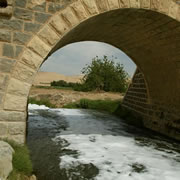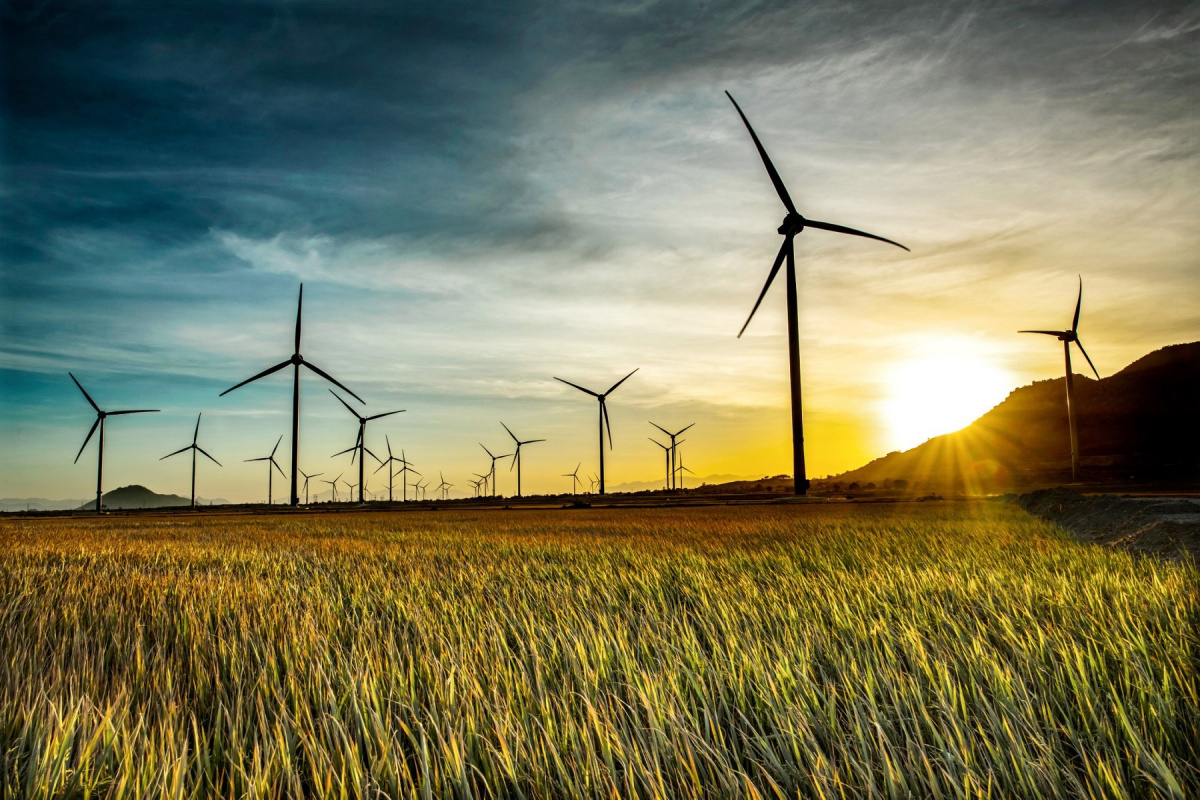World Conservation Union (IUCN) leads the way towards water cooperation in West Asia
River exhibition marks special focus on water during World Environment Day in Jordan

Photo: Dana Khrais
Pollution and water exploitation of the Zarqa River in Jordan has come to a point where urgent restoration action is needed. “Past, Present & Future Perspective” is the theme of the Zarqa River Photo Exhibition that was inaugurated on 3 June 2007 on the occasion of World Environment Day in the Jordanian capital, Amman. The aim is not only to draw attention to water quality deterioration but its effect on community health, livelihoods and agriculture in this already dry and vulnerable region.
The World Conservation Union (IUCN) through its West Asia, Central Asia & North Africa (WESCANA) Regional Office in partnership with the Jordanian Ministry of Environment took the lead in organizing this event, which is funded by the Royal Netherlands Embassy in Jordan, as part of their mutual cooperation in the field of Zarqa River Restoration.
From awareness to action, the Jordanian Minister of Environment HE Eng. Khaled Al Irani and IUCN WESCANA Regional Director, Dr. Odeh Al-Jayyousi reinforced the inauguration ceremony by signing a memorandum of understanding on the Zarqa River restoration process.
“This restoration of the river project is a long-term initiative which will take up to 10-15 years. We need strategic partners like IUCN and other donors to help us make this dream come true," Minister of Environment HE Eng. Khaled Al Irani said in his speech.
From the Royal Netherlands Embassy, HE Mr. H. Gajus Scheltema commended the Jordanian authorities on their decision to work on an integrated approach to solve the Zarqa River Pollution. Alluding to the river Rhine in Europe, the Dutch Ambassador said "It once was one of the most polluted rivers in the world and now, thanks to an integrated approach, is a very clean river".
"This exhibition is about reconstructive restoration of the past. We see conversion between past, present and future, and we believe that he who can construct images and draw, can influence the world," Dr. Odeh Al Jayyousi, IUCN WESCANA Regional Director said.
The proposed three year strategy for river restoration will be split up into several phases. Immediate pilot restoration activities will show people how progress can be achieved and what the benefits from a healthy river are. Economic progress from restoration will arise, touching on the agricultural, recreational and tourism sectors. Under phases two and three, the entire river and its ecosystems will be restored, estimated over a period of 10-15 years.
Exhibition photos were taken by the talented Jordanian photographer Dana Khreis who not only focused on the pollution of the river, but also took stunning photos of the beautiful plants and flowers growing alongside the river.
Dutch photographer Taco Anema’s work is also exhibited with photos from “Tales of Water”, a multimedia project that was launched last year during the World Water Forum in Mexico. This event also marked the start of Water for Schools; an international campaign to provide schools with safe water and sanitation facilities whilst focusing on education and long-term sustainable solutions. Taco Anema’s main focus during the project was water and children; the way children live in and with this precious resource around the world.
As a side activity IUCN WESCANA organized a school art competition where children were given the chance to draw their future vision of the Zarqa River after being rehabilitated. Two schools contributed to this competition and three winners from each school were chosen and received prizes and certificates of appreciation by the Minister during the inauguration ceremony.
The Zarqa River is the third largest in Jordan. The deterioration of the groundwater quality in Zarqa basin is due to infiltration of wastewater to a level that is unsuitable for irrigation. With the high population growth and high demand for natural resources, especially water, the exploitation of natural resources of the Basin are reaching an irreversible state unless a strategic management plan is implemented in the coming decades. The current degradation of the environmental situation within the basin area has also undermined the quality of life of residential communities in the area.
Notes to editors
For more information or to set up interviews, please contact:
Rania Faouri, Communications Officer, IUCN WESCANA Regional Office Tel: +962 6 5680322 Fax: 00962 6 5680355, rania.faouri@iucn.org Web: West Asia/ Middle East (WAME)
For more information on Water for Schools Project or Tales of Water, please contact:
Claire Warmenbol, IUCN Water Programme Communications Officer Mob: +41 79 404 1973, claire.warmenbol@iucn.org
Tales of Water video will be broadcast tonight June 5th on the occasion of the World Environment Day on Beeaty Satellite Channel http://www.beeaty.tv/
About the World Conservation Union (IUCN)
Created in 1948, the World Conservation Union (IUCN) brings together 83 States, 110 government agencies, 800 plus NGOs, and some 10,000 scientists and experts from 181 countries in a unique worldwide partnership. The Union’s mission is to influence, encourage and assist societies throughout the world to conserve the integrity and diversity of nature and to ensure that any use of natural resources is equitable and ecologically sustainable.
The Union is the world's largest environmental knowledge network and has helped over 75 countries to prepare and implement national conservation and biodiversity strategies. The Union is a multicultural, multilingual organization with 1,000 staff located in 62 countries. Its headquarters are in Gland, Switzerland.
More information can be found at www.iucn.org



